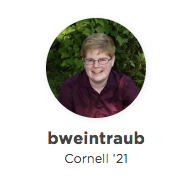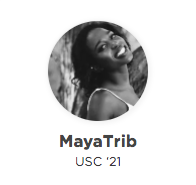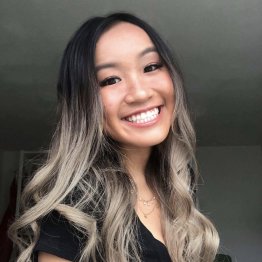Not sure who to ask to write your recommendation letter? Let our College Admits share their experience and advice.

Recommendation letters can be written by a teacher, coach, counselor, extracurricular supervisor or a mentor you’ve worked with in the past. Choosing who to ask is important, because the recommendation letter is an important part of your application. What the recommendation letter does for your college application:
1. Strengthen Your Claims
Your recommendation letter can reiterate qualities you may have mentioned in your college application essays from another perspective. It’s a lot more impactful if someone else agrees that you do possess outstanding leadership qualities, or that you are truly compassionate in everything you do.
2. Additional Perspective
Keep in mind that you won’t ever be able to read the recommendation letters that are written for you, but if your teacher or coach agreed to write one for you, you should be in good hands. They might highlight other qualities you have that you may never have thought was a strength. As adults and as your teacher, they can give admissions counselors another perspective of who you are as a person and a student.
3. Demonstrate What Type of Student You Are
More likely than not, one or both of your recommendation letters will be written by a teacher of yours. While having a strong GPA is helpful, it is just a stand alone statistic. A recommendation letter from your teacher helps illustrate what type of student you are: perhaps you’re a student that often takes initiative or one that struggles but shows continuous desire to learn and improve. This brings the numbers on your application to life and show how well you might fit into the university’s student body as a student.
Now that you know what the recommendation letter is for, it’s time to figure out who you should ask and how you should do it. Here are 5 students from the Class of 2021 and their advice on asking for recommendation letters.
samanthae
New York University ‘21
Ask your teachers at the END of junior year if they think they could write you a good recommendation (and if they’d be willing to). It’s probably good to get a humanity and a STEM teacher to write your recommendations, but it’s not necessary. My computer science teacher and my chemistry teacher wrote my recommendations (and so did my Spanish teacher but that was because I had to have a foreign teacher write that recommendation). Also! Don’t forget to thank your recommenders. View full NYU application profile.

bweintraub
Cornell University ‘21
Recommendations – the one component of your application that you are never able to see. Many students have a lot of difficulty finding teachers to write their letters of recommendation, but it should not be a difficult or stressful process. First of all, try to make sure that your recommenders were either your sophomore or junior year teacher. If the last time you had a teacher was freshmen year, and you’re asking them for a recommendation at the end of junior year/beginning of senior year, you can’t expect to get a particularly valuable letter. Yes, there may be times when you have an exceptional freshmen teacher that you really bond with, but as a general rule, it’s much wiser to ask a teacher that you have had more recently. View full Cornell application profile.
ramisa125
Barnard College ‘21
Make sure you choose recommenders who know you best, regardless of how well you did in their class. I was torn between choosing my junior year Precalculus teacher, who knew nothing about me other than the fact that I got consistently high grades in her class, and my AP Physics teacher, who had known me since freshman year and coached the Science Olympiad team of which I was the captain of. Although I received much higher grades in Precalculus than I did in AP Physics, I ended up choosing my AP Physics teacher to complete my recommendations, and I don’t regret it one bit. View full Barnard application profile.

MayaTrib
University of Southern California ‘21
In the beginning of my senior year, I had strategically planned out my three recommenders and when I approached one of them, she said that she would not write a letter for me. This is pretty rare, but it caught me off guard. I had to quickly figure out what to do. I ended up asking a teacher from a field I was not particularly interested in who’s class I received a B+. It ended up working out in the end. My advice is to actually try to go to teachers where you didn’t get the best grade or are not in a field that you want to go into in order to add depth and diversity to your application. Also, more popular teachers often have more letters to write and may not have as much time to give a personal recommendation. View full USC application profile.
Yparkk
Brown ‘21
If you don’t remind your teachers about specific things to write about, they will write a very generic letter with no anecdotes. The purpose of the recommendation letters is to help give the admissions committee a sense of who you are in the classroom; help it do that by bugging your teachers about what to write about. They will appreciate it, not scold you for it, as they do have to write recommendation letters for a lot of students. View full Brown application profile.
You can find more useful tips on the topic using our Advice Search. Our premium plans offer different level of profile access and data insights that can help you get into your dream school. Unlock any of our packages or search our undergraduate profile database to find specific profiles that can help you make an informed choice about where to apply!
















 Back
Back